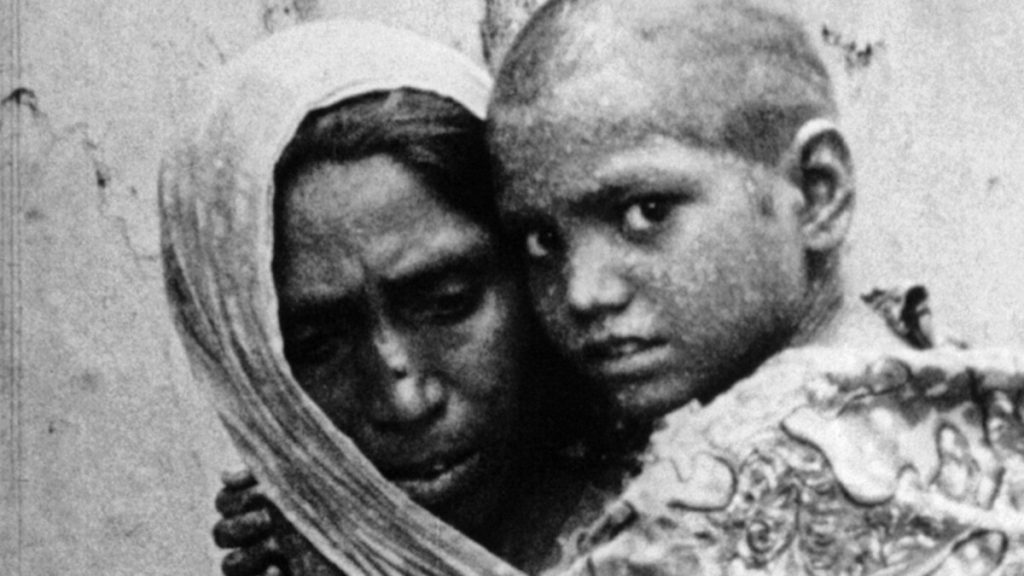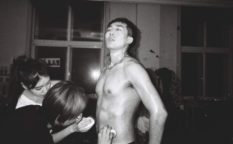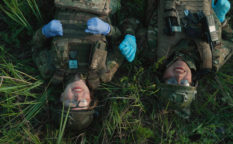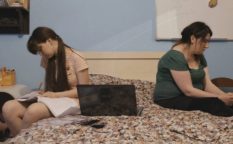Karlovy Vary review: Another Spring (2022)

The Serbian documentarist Mladen Kovačević certainly knows how to surprise his audience by changing approaches from one film to another, while keeping some of the less obvious connections. His 4 Years in 10 Minutes (2018) was a proper masterwork of using the scarce low-fi material filmed by his subject, the mountain climber himself and stretching it with the entries from the subject’s logbook / journal to a featurette-length documentary, while creating a compelling character arc. Then came Merry Christmas, Yiwu (2020), an observational work on the topic how the consumerist Christmas is “made” (at least in the form of the material knickknacks) in the factories in the city of Yiwu in China. The connection between the two was the extended use of the written material, this time the letters exchanged by the workers and their families.
His most recent one, Another Spring, has just premiered at the newly founded Proxima competition that substituted the well known East of the West section in Karlovy Vary. And now Kovačević deals with the smallpox epidemic in Yugoslavia that happened 50 years ago in the manner that combines the firm reliance on factography and an almost horror movie-like viscera not that dissimilar from the one we could see in Goran Marković’s fictionalized docu-drama Variola Vera (1982) that marked the epidemic’s 10th anniversary.
All of the material used in Another Spring is of the archival origins, and most of it is in black and white, with the few exceptions of the TV-material in colour. The factuality is also underlined with the use of the voice-over narration that extends to the whole film. Our narrator is Dr Zoran Radovanović, then a young epidemiologist, and now one of the greatest authorities in his field, and his exposé covers the events about the cause of the pandemic (its origins could be traced to an unplanned stop at the famous Baghdad Bazaar on the way back from the hajj), its flow of spreading, the approach to combat it (mass vaccination of nearly 18 million people, almost the entire population of the country), the success (many countries stepped in offering help and donating vaccines) and the epilogue of smallpox eradication not just in Yugoslavia, but also in the whole world a decade or so after the event.
Described this way, it may sound a bit boring, certainly fact-heavy and even a bit flat-lined, especially due to Radovanović’s calm voice and the use of the medical and scientific jargon used to chronicle the well-publicized outbreak of the past. But Kovačević manages to make this voluminous factual material quite visceral, relying on his editor Jelena Maksimović and the sound designer and music composer Jakov Munižaba. The archival material is “tampered” with: usually it is slowed down to almost the half of its speed, sometimes “spiced” with the additional layer of colour and often zoomed in so the effect of the epidemic horror is accented. All that is followed by Munižaba’s slow, droning soundtrack that is never too loud, but it is intense and gripping, amplifying the effect.
One might not be able to ignore the similarities and the differences between the situation of 1972 and the one of 2020 and ongoing, both on global and local level. Neither Kovačević nor Radovanović preach in Another Spring, but having Radovanović, an open and vocal critic of the current Serbian régime and the way it handled the pandemic, is certainly a political statement. Other things could also be observed: the level of solidarity between the nations and within the nation then and now, the ability of a society to be mobilized and the level of trust in science and authorities’ good intentions. Another Spring makes the viewer ask those questions and due to that, feels fresh despite dealing with a 50-year-old topic.
Original title: Još jedno proleće
Year: 2022
Runtime: 90’
Countries: Serbia, France, Qatar
Languages: Serbian, Albanian, Croatian, Slovenian, Bosnian, English, French
Directed by: Mladen Kovačević
Written by: Mladen Kovačević
Narrator: Zoran Radovanović
Editing by: Jelena Maksimović
Music by: Jakov Munižaba
Sound design by: Jakov Munižaba
Sound recording by: Vladimir Živković, Jakov Munižaba
Colourist: Marko Milovanović
Produced by: Iva Plemić Divjak, Mladen Kovačević
Production companies: Filmska produkcija Horopter, Bocalupo Films
Supported by: Film Centre of Serbia, Doha Film Institute
















